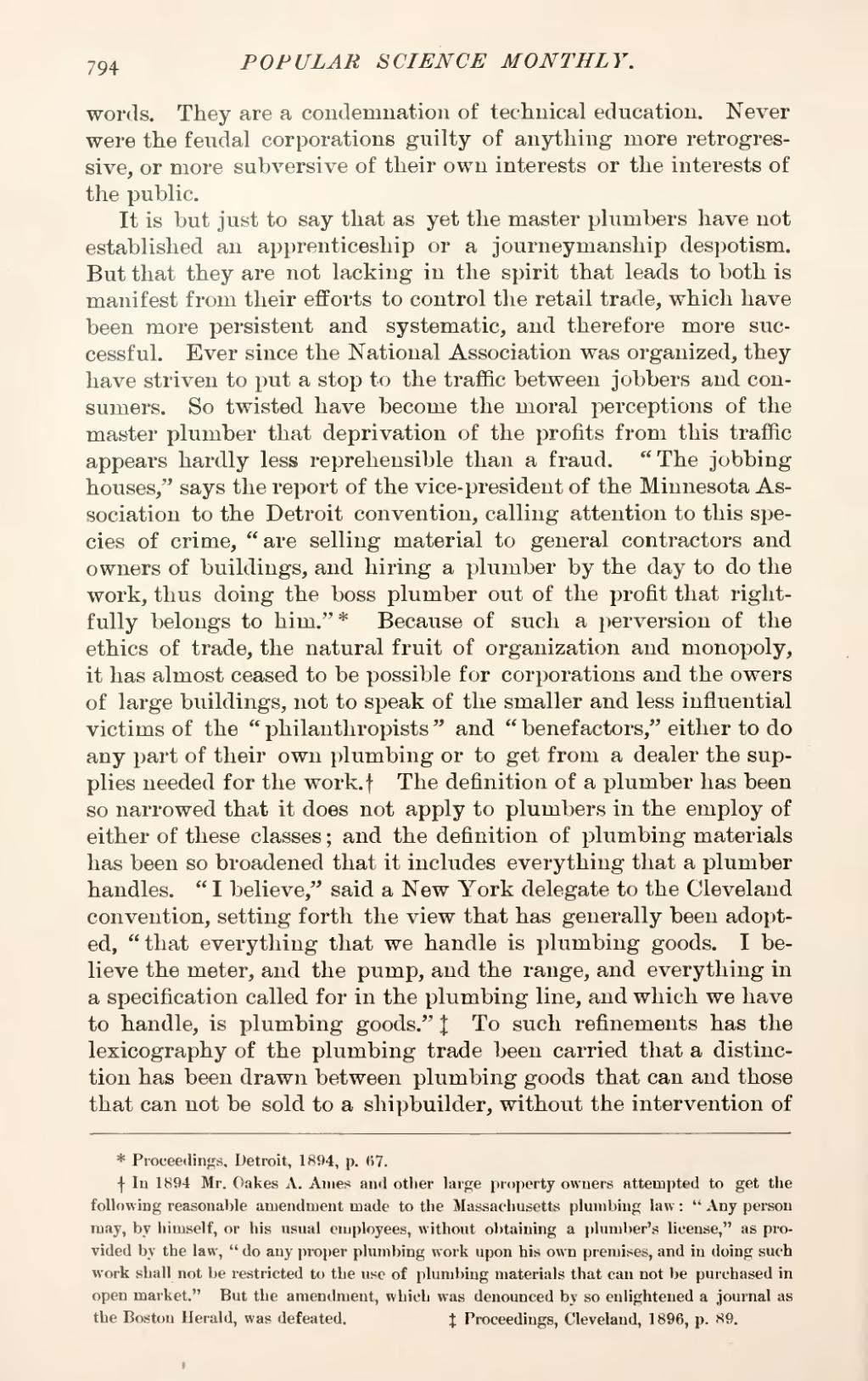words. They are a condemnation of technical education. Never were the feudal corporations guilty of anything more retrogressive, or more subversive of their own interests or the interests of the public.
It is but just to say that as yet the master plumbers have not established an apprenticeship or a journeymanship despotism. But that they are not lacking in the spirit that leads to both is manifest from their efforts to control the retail trade, which have been more persistent and systematic, and therefore more successful. Ever since the National Association was organized, they have striven to put a stop to the traffic between jobbers and consumers. So twisted have become the moral perceptions of the master plumber that deprivation of the profits from this traffic appears hardly less reprehensible than a fraud. "The jobbing houses," says the report of the vice-president of the Minnesota Association to the Detroit convention, calling attention to this species of crime, "are selling material to general contractors and owners of buildings, and hiring a plumber by the day to do the work, thus doing the boss plumber out of the profit that rightfully belongs to him."[1] Because of such a perversion of the ethics of trade, the natural fruit of organization and monopoly, it has almost ceased to be possible for corporations and the owners of large buildings, not to speak of the smaller and less influential victims of the "philanthropists" and "benefactors," either to do any part of their own plumbing or to get from a dealer the supplies needed for the work.[2] The definition of a plumber has been so narrowed that it does not apply to plumbers in the employ of either of these classes; and the definition of plumbing materials has been so broadened that it includes everything that a plumber handles. "I believe," said a New York delegate to the Cleveland convention, setting forth the view that has generally been adopted, "that everything that we handle is plumbing goods. I believe the meter, and the pump, and the range, and everything in a specification called for in the plumbing line, and which we have to handle, is plumbing goods."[3] To such refinements has the lexicography of the plumbing trade been carried that a distinction has been drawn between plumbing goods that can and those that can not be sold to a shipbuilder, without the intervention of
- ↑ Proceedings, Detroit, 1894, p. 67.
- ↑ In 1894 Mr. Oakes A. Ames and other large property owners attempted to get the following reasonable amendment made to the Massachusetts plumbing law: "Any person may, by himself, or his usual employees, without obtaining a plumber's license," as provided by the law, "do any proper plumbing work upon his own premises, and in doing such work shall not be restricted to the use of plumbing materials that can not be purchased in open market." But the amendment, which was denounced by so enlightened a journal as the Boston Herald, was defeated.
- ↑ Proceedings, Cleveland, 1 896, p. 89.
